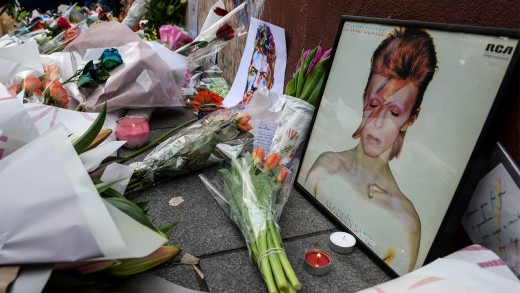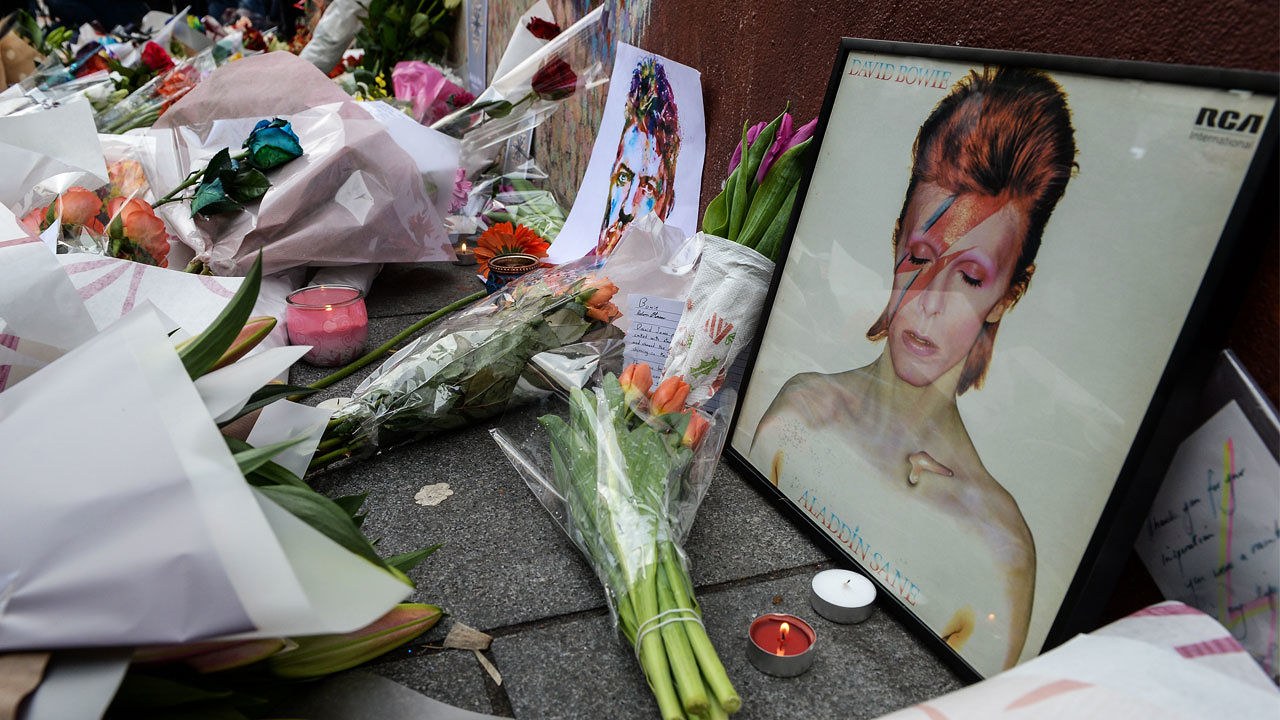David Bowie Predicted The Future Of Music In 2002
”Music itself is going to become like running water or electricity,” Bowie said nearly 14 years ago. And here we are today.
As the world mourns David Bowie today, there will be no shortage of tributes to him as a creative innovator, a cultural icon, somebody who cared little for the rules (and thus rewrote them). He was a music industry visionary, especially with one prediction that anticipated our era of streaming music.
In a 2002 interview with the New York Times, Bowie foresaw the reshaping of the music industry that was only then beginning. He predicted that record labels would become less relevant (ding ding!) and that copyright would disappear (not quite) within 10 years, before making his most prescient observation of all: ”Music itself is going to become like running water or electricity.”
In 2016, the idea of paying $10 per month for access to millions of songs seems normal. But back then, the idea sounded like a sci-fi fantasy. In 2011, Spotify announced its long-awaited U.S. launch, only to be followed by a series of competing music subscription services. Last year, as if to officially herald the death of the music download popularized by iTunes, Apple launched Apple Music. And here we are.
Here are Bowie’s musings on music distribution and copyright, circa 2002:
”I don’t even know why I would want to be on a label in a few years, because I don’t think it’s going to work by labels and by distribution systems in the same way,” he said. ”The absolute transformation of everything that we ever thought about music will take place within 10 years, and nothing is going to be able to stop it. I see absolutely no point in pretending that it’s not going to happen. I’m fully confident that copyright, for instance, will no longer exist in 10 years, and authorship and intellectual property is in for such a bashing.”
Of course, copyright is still around, although governments around the world (including ours) are still struggling with how to redefine it for the 21st century. Industry-backed laws like the Stop Online Piracy Act (SOPA) may have failed to pass the Internet’s sniff test (and failed as a result), but efforts to reform copyright in the U.S., Europe and elsewhere are ongoing. Copyright isn’t dead, but it is in the process of being radically redefined.
In place of the industry structures then beginning to crumble, Bowie foresaw a system by which people would pay for access to music. But he was also realistic about the economics: This new model wasn’t going to be anywhere near as profitable as during the heyday of recorded music sales.
”So it’s like, just take advantage of these last few years because none of this is ever going to happen again,” Bowie said to the Times. “You’d better be prepared for doing a lot of touring because that’s really the only unique situation that’s going to be left. It’s terribly exciting. But on the other hand it doesn’t matter if you think it’s exciting or not; it’s what’s going to happen.”
Record industry executives couldn’t entirely be blamed if they smugly shrugged off Bowie’s prediction in 2002. At the time, although file-sharing had started to nibble away at record sales, the industry’s free-fall had just barely begun. In 2002, recorded music generated over $24 billion in revenue, according to IFPI. But 10 years later, that number had dipped down closer to $15 billion. It hasn’t stopped dropping since, even as revenue from music subscriptions grows.
In, 2002, the music industry was still riding high with successes like NSync’s massive hit, “No Strings Attached” (whose two-week record sales were only just surpassed last year, by Adele). Back then, it was easy to imagine that physical album sales might bounce bank and reign supreme. And yet here we are, paying monthly fees for music like it’s just another utility bill. Indeed, just like water or electricity.
Fast Company , Read Full Story
(14)














